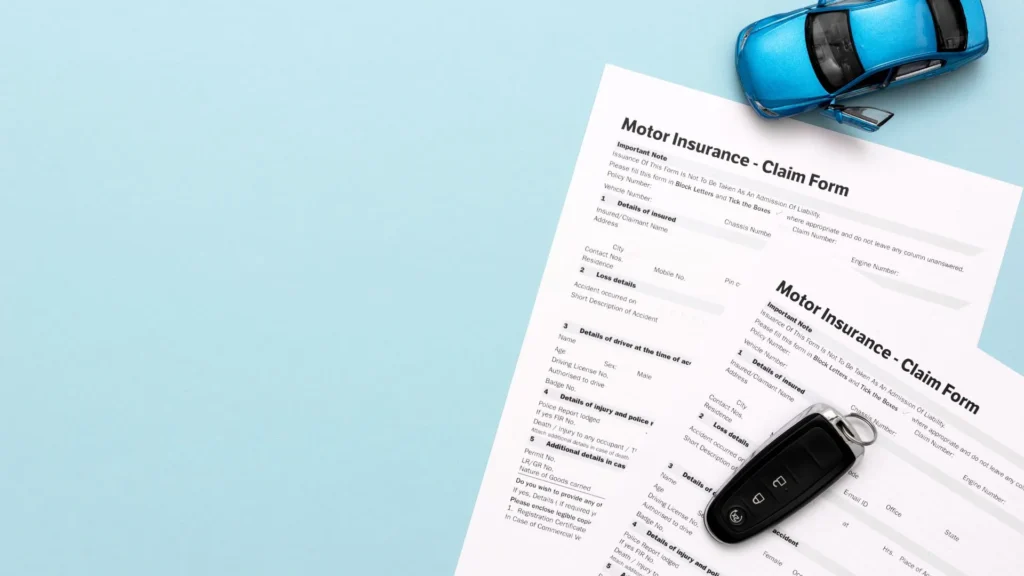An essential component of responsible vehicle ownership, car insurance ensure financial protection against accidents, theft, or other unexpected events. However, circumstances change, and you may find that your current car insurance no longer meets your needs or is too expensive. In such cases, it’s essential to understand how to change car insurance.
Before changing your car insurance, use Beem’s online comparison tool to find the best policy. Now, let’s explore the process of changing car insurance, from when to switch to the steps involved and whether changing car insurance is a good idea for you.
When to Change Car Insurance
Knowing when to change car insurance is crucial. Here are some situations that might prompt you to consider changing your car insurance:
Policy Renewal
Most car insurance policies have an annual renewal period. This is an ideal time to review your coverage, rates, and overall satisfaction with your current insurer. If you’re dissatisfied or have found a better deal elsewhere, it’s a prime opportunity to switch.
Life Changes
Major life events, such as moving to a new state, getting married, or buying a new car, can significantly impact your insurance needs. It’s essential to ensure that your policy adequately covers these changes.
Price Increases
If you’ve noticed a significant increase in your insurance premium without any corresponding benefits or changes in your circumstances, it’s a sign that you should explore other options.
Better Offers
Insurance companies periodically update their offerings, and new competitors might provide better coverage or rates than your current insurer.
Poor Customer Service
If you’ve had a negative experience with your current insurance company’s customer service, it might be time to switch to a provider that offers better support.
| Driving and credit history | Average annual cost of full coverage | Average annual cost of minimum coverage |
| Good driver with good credit | $2,148 | $685 |
| Good driver with poor credit | $3,455 | $1,118 |
| Driver with an at-fault accident and good credit | $3,164 | $1,044 |
| Driver with a recent DUI and good credit | $3,933 | $1,403 |

How to Compare Car Insurance Companies
When considering changing car insurance, comparing different companies is crucial to ensure you’re getting the best deal. Here’s how to go about it:
1. Research: Start by researching reputable car insurance companies. Look for well-established insurers with a record of reasonable customer satisfaction and financial stability.
2. Coverage Options: Compare the coverage options each company offers. Ensure that the new policy provides at least the same level of coverage as your current one, if not more.
3. Rates: Request and compare quotes from multiple companies for the same coverage. Be sure to provide accurate information to get an apples-to-apples comparison.
4. Discounts: Inquire about available discounts. Many insurers offer discounts for good driving history, bundling different policies, or having certain safety features in your vehicle.
5. Customer Reviews: Read customer reviews and ratings for the companies you’re considering. It will help you get some valuable insights into customer experience.
6. Claims Process: Research the claims process for each insurer. A smooth and efficient claims process can significantly affect a stressful time.
7. Customer Service: It is crucial to check the quality of customer service to ensure that the insurer is responsive, helpful, and reliable.
Read more: how do car insurance claims work
Key Steps to Change Car Insurance
Once you’ve decided to change car insurance, follow these eight steps to make the process seamless:
1. Research and Choose: Select the new car insurance company that best meets your needs based on your research.
2. Policy Overlap: Ensure coverage is maintained between your current and new policies. Coordinate the new policy’s start date with the old one’s end date.
3. Cancellation of Current Policy: Contact your insurer to cancel your policy. Be cautious of prospective cancellation fees or penalties.
4. Notify DMV: Inform your state’s Department of Motor Vehicles (DMV) about the change in insurance. Many states require continuous coverage, and failing to do this could result in fines or penalties.
5. Proof of Insurance: Obtain proof of insurance from your new insurer. You must carry this document in your vehicle to show law enforcement if needed.
6. Update Lender or Leaseholder: If you’re financing or leasing your vehicle, notify the lender or leaseholder about the change in insurance.
7. Automatic Payments: If you had automatic payments set up with your old insurer, cancel them to avoid double payments.
8. Review New Policy: Carefully review your new policy once you receive it to ensure it matches what you agreed upon during the quoting process.
also know about: tips for buying car insurance
Is Changing Car Insurance a Good Idea?
Changing car insurance can be a smart move under the right circumstances. If you find better rates, more comprehensive coverage, and improved customer service, or if your life circumstances change, switching can save you money and provide better protection. However, weighing the benefits against any cancellation fees or potential gaps in coverage is essential. Be sure to review your options thoroughly before making a decision.

Conclusion
Changing car insurance is a process that requires careful consideration. Regularly evaluating your policy, comparing options, and staying informed about changes in the insurance landscape can help you make the right decision for your needs. Remember, following the steps, such as canceling your old policy and notifying the DMV, is essential to ensure a smooth transition. Before changing your insurance, ensure to use Beem’s online comparison tool to find the best policy for your needs. Consider the coverage options, deductibles, and premiums offered by different insurance companies and pick the best one that suits your needs. Ultimately, the goal is to have car insurance that provides adequate coverage at a reasonable price while aligning with your current situation.
Frequently Asked Questions
1. Will Changing Car Insurance Affect My Credit Score?
No, changing car insurance does not impact your credit score. However, some insurers use credit-based insurance scores to determine rates, which may result in a soft inquiry on your credit report.
2. Will Changing Car Insurance Affect My Credit Score?
Yes, you can switch car insurance mid-policy. However, be aware of potential cancellation fees from your current insurer and ensure no coverage gap.
3. How Often Should I Review My Car Insurance Policy?
It’s a good idea to review your car insurance policy annually during renewal. Additionally, review it when you experience major life changes or if you notice significant rate increases.





























